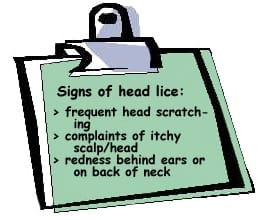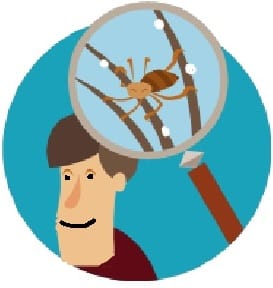The return to school can mean an increase in cases of head lice. Children are more likely to get them than adults because children play and live so close together, especially at school and daycare. Dr. Paul Guillebeau and Gretchen Van De Mark, UGA Entomology Department, share valuable information in two publications on understanding and controlling head lice.
Head Lice 101: The Basics
 Do not panic! Head lice are not an emergency and, in most cases, do not pose any health risk. Misuse of pesticides, however, and use of unlabeled treatments (ex., kerosene) can pose a health risk.
Do not panic! Head lice are not an emergency and, in most cases, do not pose any health risk. Misuse of pesticides, however, and use of unlabeled treatments (ex., kerosene) can pose a health risk.
Head lice CANNOT live off a human host for more than 24-48 hours. Head lice CANNOT live on pets. Head lice CANNOT reproduce in carpets, furniture or other household furnishings.
PESTICIDE SPRAYS DO LITTLE OR NOTHING TO CONTROL LICE. NEVER treat homes, cars, furniture, beds, pillows or clothing with pesticides (e.g., ‘lice bombs,’ flea bombs, sprays, etc.) in an attempt to control head lice. You will expose yourself and others to unnecessary pesticide risk.
If your school sprays rooms, buses, furniture, etc., to control head lice, ask them to stop immediately. Refer your school to the Cooperative Extension Service brochure called A School’s Guide to the ‘Nitty-Gritty’ about Head Lice.
Head lice are very common among all classes of people. More than 12 million people, mostly children and school personnel, get head lice each year.
Direct head-to-head contact with an infested person is the main way head lice are transmitted, but they may also be transmitted by sharing hats, scarves, headphones, combs and other hair accessories. Lice cannot hop, jump or fly, but they can crawl rapidly.
The best treatment for head lice is manual removal (see ’10 Tips for Manual Removal’ in A Parent’s Guide to the ‘Nitty Gritty’ about Head Lice ).
If a lice shampoo is warranted, ask your doctor or pharmacist for specifics on the product and follow all label instructions exactly. Misapplications can be ineffective and dangerous as well.
See these UGA publications for more information on controlling head lice safely and effectively
A School’s Guide to the ‘Nitty-Gritty’ about Head Lice, Paul Guillebeau and Gretchen Van De Mark
A Parent’s Guide to the ‘Nitty-Gritty’ about Head Lice, Paul Guillebeau and Gretchen Van De Mark
